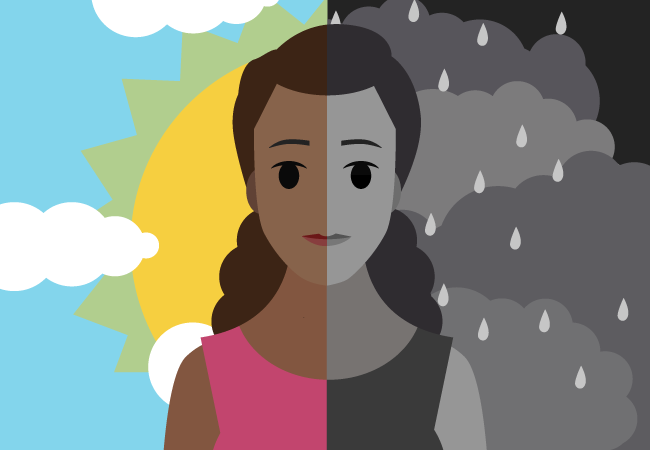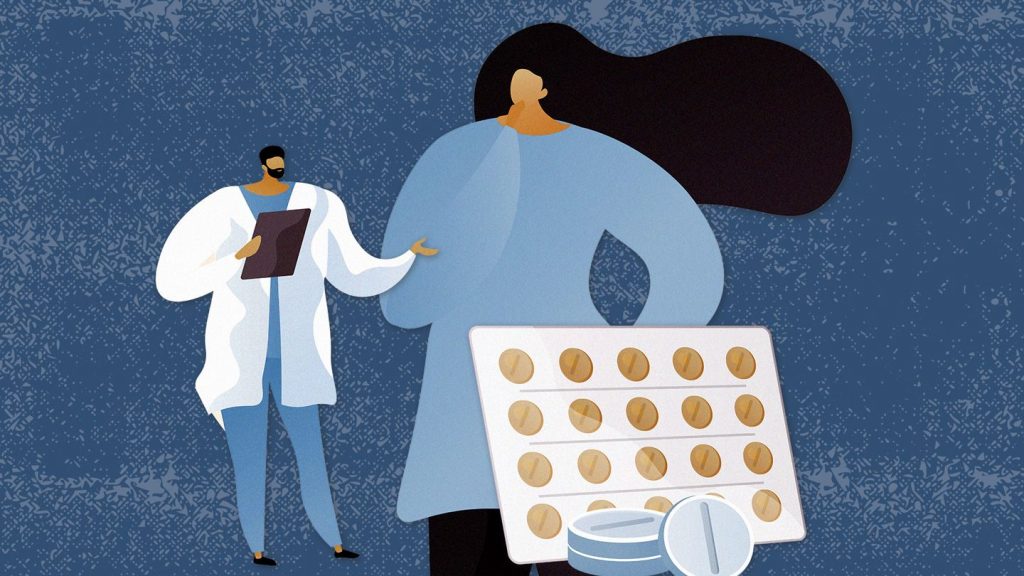Understanding Bipolar Disorder in Youth-Types,Causes and Treatments

Understanding different mental illness that people go through is very important. Especially now, many people, including the youth, are suffering from different mental illnesses like anxiety, depression etc. Similarly bipolar disorder is another mental illness that can be seen in youth. Thus understanding bipolar and increasing awareness of the same is very important.
Understanding Bipolar Disorder
Bipolar disorder is a condition where individuals go through extreme changes in mood and behavior. There are 2 stages for Bipolar disorder. They are hyper and extremely happy in this stage. It is characterized as low impulse in control, high energy, high risk-taking behaviours, extreme distractibility, high irritability and an inflate sense of self. This is the mania stage. They can also swiftly move to the other extreme of being very low in mood, low energy and self-esteem, loss of interest in activities that were once very enjoyable and being highly sensitive to rejection or failure. They might have suicidal thoughts and give threats of or run away from home. This is the depressed stage.
Bipolarity in Youth

Image credit:https://cle.clinic/3t07Fmk
Bipolarity in children and youth is clinically termed as Pediatric bipolar disorder (PBD). It is a mental disorder affecting roughly 2% of youth under the age of 18. The pathology of almost 55–60% of adults with bipolar disorder (ABD) starts in childhood and adolescence with mild forms of the symptoms of ABD.
The measures used for understanding bipolar disorder in youngsters are equivalent to those utilised for adults — variations between depression, which can incorporate outrageous sadness, low energy levels, loss of joy and self-destructive ideation, and hypomania or madness, which can include times of raised temperament, irritability, a decreased feeling to rest, increase in need to work and achieve the goals in life and overconfidence. Thus understanding bipolar is very important.
Bipolar linked with heredity
Bipolarity is linked with heredity. One of the major risk factors of BD is the presence of a family member in the previous generation with BD. Heredity is seen as a highly significant pattern, researchers are looking into finding a genetic basis for bipolarity.
Diagnose of Bipolarity
Bipolarity in youth is hard to diagnose as it is present with symptoms that are similar to those of many childhood disorders like disruptive behaviour disorder (DBD), attention deficit hyperactivity disorder (ADHD), severe mood dysregulation disorder (SMD) and pervasive developmental disorder (PDD). Since it is difficult to differentiate between these disorders, there have been many cases of misdiagnosing children and adolescents with PBD. This reduces their chances of being given proper treatment as well as a smooth prognosis of ABD in the future.
Comorbidity of mental illness
Understanding Bipolar disorder is not easy.Comorbidity is another issue that individuals with PBD face. PBD tends to co-occur with ADHD and different kinds of anxieties in children and teens. High rates of comorbidity are seen in anxiety disorders. Following are ADHD, Disruptive behaviour Disorder (DBD), Substance Use Disorder (SUD) and Pervasive Developmental Disorder (PDD). Comorbidity also tends to negatively affect the clinical profile of bipolar youth. Moreover, most individuals diagnosed with PBD, have a clinical history of anxiety disorders and ADHD. Due to this, they are high risk factors for the development of PBD.Pediatric bipolar disorder treatment contains mood-stabilising drugs, talk-therapy as well as family-therapy.
Treatment

Image credits:https://bit.ly/3t1yre9
For most instances of pediatric bipolar disorder, the American Academy of Child and Adolescent Psychiatry suggests a blend of medication and psychotherapy.
Mood stabilizers and antipsychotic drugs are used for quite a long time to treat bipolar disorder. But , they are likewise compelling in the children’s population. By and large, medicine balances out the youth so they can partake really in psychotherapy, which then, at that point, assists with longer-term symptom management and coping methods.
However, many parents express worry about their children or adolescents consuming such prescriptions. Antipsychotics, for example, can cause metabolic aggravations that might bring about weight gain and an expanded risk for Type 2 diabetes.
Utilising a group therapy as a treatment design, Mary A Fristad , an Emerita Professor of Psychiatry and Behavioural Health, fostered a broadly utilised psychosocial treatment program, Multifamily Psychoeducational Psychotherapy (MF-PEP), for kids and youths with state of mind disorders. Psychoeducation, an essential part of MF-PEP, shows guardians techniques for overseeing hyper and depressive attacks, as well as how to explore school and wellbeing frameworks to best help their kid.This in-turn helps them for understanding bipolar disorder.
Relationships
Living with bipolar disorder doesn’t imply that an individual will encounter problems making and keeping up with any relationship. Nonetheless, without appropriate treatment and an encouraging group of people, side effects of the condition might overburden these connections. Therefore a proper understanding of Bipolar disorder should be there.
It is essential to know that while a friend can assist support somebody with bipolar disorder, it isn’t their obligation to attempt to fix their concerns. Frequently, offering a listening ear, sympathy, and consolation is the help a companion with bipolar may require in the midst of trouble and may help them head straight towards finding help themselves.
Communication, compassion, and empathy, play a basic part in all connections. Having these characteristics can empower an individual to be a strong companion to somebody with bipolar disorder. Offering positive support can assist people with dealing with their condition better.
Conclusion
Bipolar disorder can cause one to feel completely lonely. However, that truly isn’t true. Multiple million around the worlds are adapting to bipolar disorder at the moment.
Faulting oneself for your condition is not right. Bipolar disorder is an actual sickness, not an indication of individual shortcomings. It’s like diabetes, blood pressure, or any type of other ailments. No one knows what causes bipolar disorder, however, for some individuals, it is a truly manageable condition.
The most important thing is to zero in on what’s in store. Living with bipolar disorder can be intense. Be that as it may, never allow it to capture your life. Make a move and recapture control of your wellbeing. With commitment and the assistance of one’s doctors, one can recover and return to normal life.
References: https://bit.ly/3NHZXVX
Tags: Bipolar disorder, treatments, understanding bipolarity,









